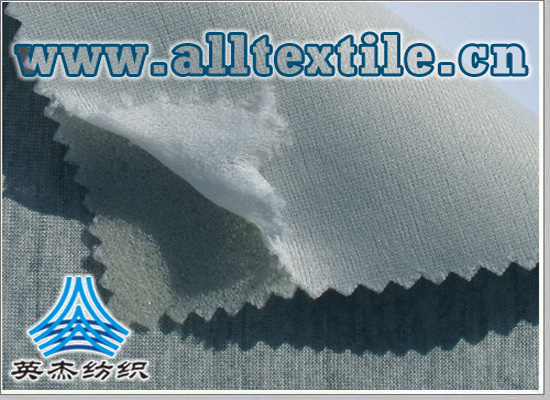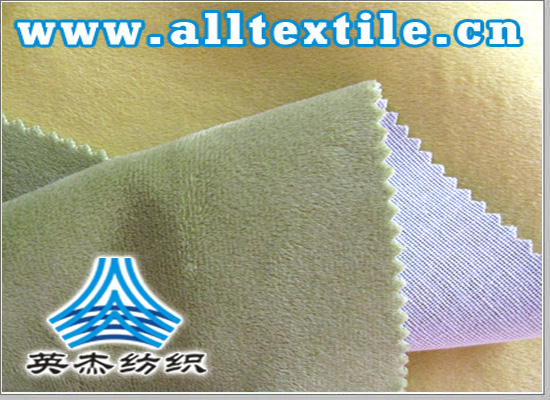Introduction to aramid
Introduction to Aramid
Aramid refers to a high-tech synthetic fiber made from aromatic compounds as raw materials through polycondensation spinning. Its full name is aromatic polyamide fiber. In 1974, the United States Trade Federation named it “Aramid fiber”, referred to as AF. Its definition is: at least 85% of the amide bonds (-CONH-) are directly connected to the carbon atoms in the two benzene rings. Aramid, carbon fiber, and ultra-high molecular weight polyethylene fiber are collectively known as the world’s three largest high-performance fibers.
Aramid fiber has excellent properties such as light weight, flame retardant, temperature resistance, insulation, radiation resistance, high strength, and high elastic modulus; it is widely used in military and national defense, security protection, aerospace, environmental protection, electronic and electrical materials and other fields.

Classification of aramid fiber
At present, the main products that achieve industrial production are meta-aramid (aramid 1313) and para-aramid (aramid 1414). The molecule of meta-aramid (aramid 1313) is a zigzag linear macromolecule composed of amide groups connected to meta-phenyl groups. In its crystal, hydrogen bonds exist on two planes, arranged like a lattice, thus forming a three-dimensional structure of hydrogen bridges; the macromolecular structure of para-aramid (aramid 1414) is an amide bond connected to the benzene ring. bit, forming a nearly rigid linear structure, which is a main chain polymer liquid crystal polymer. The chemical structures of the two are similar, but their properties are quite different and their application fields are different.
Meta-aramid has outstanding high temperature resistance, flame retardancy and insulation, and is mainly used in fields such as high-temperature protective clothing, electrical insulation and high-temperature filtration. Para-aramid has the characteristics of high strength and high modulus, and is mainly used in personal protection, bulletproof armor, mechanical rubber products, high-strength cables, asbestos substitutes, etc.
1. Meta-aramid
The full name of meta-aramid fiber is poly-m-phenylene isophthalamide fiber, commonly known as aramid 1313. It is known as “fireproof fiber”. It is an organic high-temperature resistant flame-retardant fiber with excellent comprehensive properties. It is a thermally stable fiber. High-performance fiber materials with high flame retardancy and good electrical insulation are widely used in fields such as safety protection, environmental protection and modern industry.
In the field of safety protection, protective clothing, protective gloves and other safety equipment made of meta-aramid can effectively resist high temperatures, flames, arcs and other operational injuries, and protect workers’ safety to the maximum extent. They are widely used in the military, firefighting, petroleum, etc. Electric power, forestry and other fields;
In the field of environmental protection, meta-aramid can be processed into needle-punched non-woven fabrics and woven filter fabrics, which are widely used in high-temperature flue gas filtration in cement, steel, road construction and other industries. The dust removal efficiency reaches 99.99%, which can greatly reduce air pollution. Emission of pollutants to achieve environmental protection, green and sustainable development;
In the field of modern industry, meta-aramid fiber is widely used in various types of high-temperature transportation equipment, power transmission equipment, electrical insulation equipment and other industrial production fields due to its temperature resistance, flame retardancy, insulation and other properties. It is an important component of modern manufacturing industry. Basic and key materials.
Meta-aramid chemical structure formula 2, para-aramid
The full name of para-aramid fiber is poly-p-phenylene terephthalamide fiber, commonly known as aramid 1414. It is known as “bulletproof fiber” and is one of the high-performance fibers with the largest output and the most widely used in the world today. In the automotive industry, para-aramid is an indispensable skeleton reinforcement material in automobile hoses, tires, and timing belts. It is an important environmentally friendly reinforced wear-resistant material in brake pads and clutch plates, especially environmentally friendly turbocharged vehicles. The application of aramid is irreplaceable; in the field of information and communication, the application of para-aramid has greatly promoted the development of the communication industry. Para-aramid is now used in almost all optical fiber cables, new mobile phone batteries and other information and communications products, which play an important role in accelerating the modernization of communications.

The development history of aramid fiber
The main performance characteristics of aramid fiber
Aramid fiber has excellent properties such as light weight, flame retardant, temperature resistance, insulation, radiation resistance, high strength, and high elastic modulus; it is widely used in military and national defense, security protection, aerospace, environmental protection, electronic and electrical materials and other fields.
<p style="color:#444444;font-family:&quo��Fireproof, anti-cut, corrosion-resistant and other properties, suitable for fire protection, safety, marine and other aspects, such as escape ropes, parachute ropes, etc. When used in a marine environment, ropes made of aramid can withstand the impact of seawater, and marine organisms such as algae and shells are not easy to colonize the ropes.
3) Friction materials
Utilizing the properties of aramid fiber such as high temperature resistance and wear resistance, it can be used to manufacture brake pads, clutches and other products.
4) Building materials
Aramid fibers can replace asbestos to reinforce cement, provide light structures and high-strength components, prevent cracking of cement products, and improve the earthquake resistance of buildings.
Aramid fiber application market situation
1. Market situation of meta-aramid fiber
As of the end of 2018, the global production capacity of meta-aramid fiber was about 39,000 tons, more than 50% of which was concentrated in DuPont; my country currently has 2 large-scale production companies of meta-aramid fiber, with an effective production capacity of about 10,000 tons.
The current global production capacity of meta-aramid fiber is about 40,000 tons/year. The global market demand (excluding fiber for papermaking) total terminal consumption is about 27,000 tons, of which the United States is about 10,000 tons and Western European countries are about 9,500 tons, accounting for more than 70% of the market. my country’s meta-aramid fiber consumption is about 5,000- 6000 tons.
Main domestic and foreign meta-aramid fiber manufacturers and their production capacity








